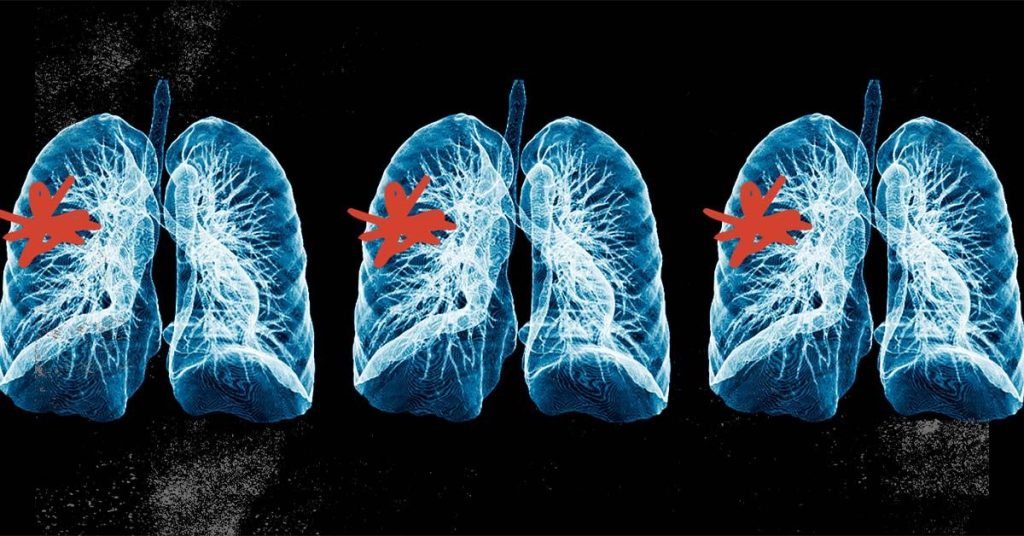A new study published in the New England Journal of Medicine revealed that nearly 70% of individuals with asthma or chronic obstructive pulmonary disease (COPD) are undiagnosed, leading to negative long-term health outcomes and reduced quality of life. This research, conducted by Dr. Shawn Aaron and his team, emphasized the importance of early detection and treatment for these respiratory conditions. The study found that individuals with undiagnosed asthma or COPD experienced significantly poorer quality of life, impaired work performance, and frequent respiratory symptoms. To address this issue, researchers recommend that individuals with respiratory symptoms should consult a physician and request a spirometry test for early detection and treatment.
The study involved surveying over 26,000 individuals to identify 595 asthma and COPD diagnoses, which were confirmed through spirometry testing. A group of 508 participants then received either typical clinical care or specialized care from a lung specialist. Both groups saw improvements in their symptoms, with those under the care of lung specialists experiencing greater benefits, including fewer doctor visits and improved quality of life as measured by the St. George’s Respiratory Questionnaire. These findings underscore the positive impact of early diagnosis and treatment for asthma and COPD, highlighting the role of lung specialists in managing these conditions effectively.
Dr. Robert Jasmer, a pulmonologist not involved in the research, expressed optimism about the study’s results, noting the benefits of early diagnosis and treatment for respiratory conditions. He emphasized the importance of specialized care from pulmonologists in improving patient outcomes. While the study’s findings may seem intuitive, they shed light on the underlying reasons for the high rates of undiagnosed respiratory illnesses, such as COPD. Delayed diagnosis, physician oversight, and patient denial or ignorance may contribute to this issue, underscoring the need for greater awareness and advocacy for respiratory health.
Dr. Aaron highlighted the progressive nature of COPD, noting that symptoms may be overlooked or dismissed as part of aging until they become severe. He emphasized the significance of persistent respiratory symptoms, such as coughing, wheezing, or chest tightness, as potential indicators of underlying respiratory conditions. Patient self-advocacy, including requesting a spirometry test when experiencing respiratory symptoms, can play a crucial role in early detection and treatment. By recognizing the importance of proactive respiratory health management, individuals can take steps to improve their overall well-being and quality of life.
Despite prevailing misconceptions about the treatability of respiratory conditions like COPD, Dr. Jasmer highlighted the effectiveness of medical treatments and lifestyle changes in managing symptoms and improving quality of life for patients. He dispelled myths surrounding the hopelessness of COPD management, emphasizing the positive impact of early diagnosis and appropriate treatment. By debunking negative perceptions and promoting awareness about the benefits of specialized care, individuals with respiratory conditions can access the resources and support needed to enhance their respiratory health outcomes. Ultimately, early detection and treatment remain key factors in improving the quality of life for individuals with asthma and COPD, underscoring the importance of proactive respiratory health management and advocacy.


